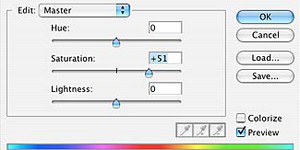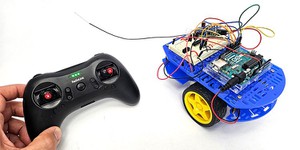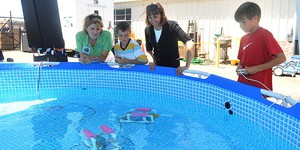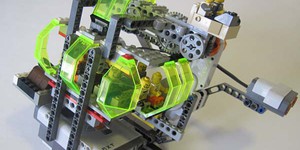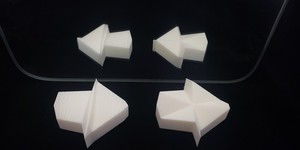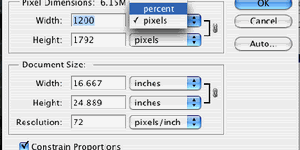Others Like “Image Compression” (top 20 results)
|
Make a pinhole projector (see Measuring the Diameter of the Sun and the Moon). Use the pinhole to project an image of the Sun onto a wall or a piece of paper. Do you notice any dark spots on the projected image? Trace the projected image and count the dark spots. Use your pinhole projector to make images of the Sun at the same time of day for several consecutive days. How does the pattern of spots change? Can you use your data to figure out how fast the Sun rotates? Sunspot activity rises…
Read more
In this project you'll learn about how digital image files are encoded, and how digital images can be compressed so that the files take up less storage space and can be transmitted more quickly. You will also measure the quality of compressed and uncompressed images, which will give you important insights into the tradeoffs between file size and image quality.
Read more
Lively, vivid colors can add pizzazz and turn a dull photo into a work of art. Learn how changing the saturation levels of the colors in your photo can really make it pop!
Read more
Learn how to edit sound files so that you can manipulate the recorded sound mathematically. You can either find specialized audio editing software or do background research to teach yourself about sound file structure so that you can write your own simple program to manipulate sound files. Try arithmetic operations on the sound values (e.g., adding or subtracting a constant, multiplying or dividing by a constant). How do these operations alter the sound? Try other mathematical operations:…
Read more
If the prefix "macro" means large and "micro" means small, then why will the macro setting of a digital camera help take a better picture of a small object? Do this experiment and get the big picture.
Read more
Radio-controlled (RC) robots can explore places that are difficult or dangerous for humans to get to, like collapsed buildings after a natural disaster. They can use cameras and a variety of other sensors to gather information about their environment, like the presence of toxic gases or other hazardous materials. The robots can even use grippers and robotic arms to collect and safely dispose of some materials. You can build your own RC robot using the Science Buddies Bluebot kit, Science…
Read more
Underwater robots, or remotely operated vehicles (ROVs), help us explore areas of the ocean that can be dangerous for humans. They can provide valuable scientific information about deep-sea life and ocean climate. However, you do not need access to the ocean to build and test your own ROV. If you have ever wanted to build your own ROV but were not sure where to start, the SeaPerch platform is a great option. You can purchase a complete kit with all the required parts and follow the detailed…
Read more
If you ever rode in a cable car, ski lift, or gondola, you know they make moving over obstacles like lakes, valleys, rivers, or even up steep mountains seem easy. Though it would be pretty difficult to build a full-size cable car in your home, if you have a Mindstorms® kit, you can build a working-model cable car of your own. The engineering challenge is to build a LEGO® cable car that can travel across a string you have suspended somewhere in your house (between two pieces of…
Read more
The Science Buddies project Design Your Own 3D Printed Optical Illusion shows you how to make your own 3D printed "anomalous mirror symmetry" illusions (Figure 1). The illusions are based on the work of Dr. Kokichi Sugihara. You can read his original paper about the illusions in the Bibliography.
Figure 1. Two versions of the "impossible arrow" shape that appears to point to the right while its reflection in the mirror appears to point to the left. Which…
Read more
Do you have a favorite picture? When you have a photo that you treasure, you want it to look as good as possible. Find out how the resolution of a digital photo effects the way it looks when you print it out. How does the quality of the image relate to the resolution?
Read more
|
Explore Our Science Videos
Build a Bird Feeder to Study Birds – STEM activity
Shrink a Potato with Osmosis – STEM activity
Measure Static Electricity With An Electroscope!


